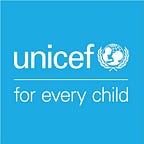When an alternative learning program provides children with a protective learning routine.
In the Fako and Meme divisions of the South-West region, radio-learning a groundbreaking and innovative initiative has allowed more than 3,500 crisis affected children to continue their learning.
The educational situation in North-West and South-West regions of Cameroon continues to deteriorate since armed separatist groups have enforced a boycott of education. School buildings have been burned, students and teachers kidnapped. Armed groups have used schools as bases, torturing and holding people hostage in and near them.
The impact of the education crisis has led to a wide-range of severe protection risks including sexual exploitation and abuse, gender-based violence, forced recruitment by armed forces, arbitrary arrest, early marriage and pregnancy. Many children have been separated from their families or have had to head households because of their caregivers being killed during the conflict. Attacks against school facilities, teachers and parents who send their children to learn and children who participate in learning exercises continue.
This is why UNICEF has developed the project entitled “Access to alternative learning program to crisis affected children including IDPs through Radio Education in Fako and Meme divisions of the South-West region” funded by United Nations Central Emergency Response Fund (CERF) and implemented by Community Humanitarian Emergency Board International (COHEB).
The project provided a first or second chance to 3,500 children who never attended school or dropped out as they cannot be integrated into the formal education system, whereas the capacity of 15 criers and 175 facilitators are to be reinforced. The project covered 10 subdivisions with 4 in Meme division and 6 in Fako.
Family heads were sensitized to the importance of this program and the need for their children to take part in it. The Radio Learning Programme focuses on literacy, numeracy, life-skills or skills training, to increase their employability and improve their livelihoods.
“Most of these children are coming from the bushes, from the villages that have been burned down. They are really happy to be in this area to learn in the safe learning spaces we are created” said Njato Georges, the project coordinator of the South West. “A lot of them have learned a lot. Some of them that could not read, that who have not been in school for 2, 3 years can now read, they can write, they can speak English, they can calculate. The radio education Programme has been so beneficial to our different communities said Njato Georges.
Favour, a 11-year-old girl has not set foot in a classroom in 3 years but learns through a Radio Learning Programme, since her school was destroyed. She and her family were forced to escape their village in the North-West Region. She describes how the Radio Learning Programme allowed her to cultivate her ambitions, “I’m happy to have resumed with school. I made many friends here. I liked maths. My ambition is to Become a doctor to help others from suffering sickness”, she said.
Many children across the North West and South west regions still don’t have the chance of an education because of the crisis. Most of them are girls. The needs of children remain dire. The Radio Learning Programme is a chance. It can help curb the disruption to children’s education and keep children learning safely.
